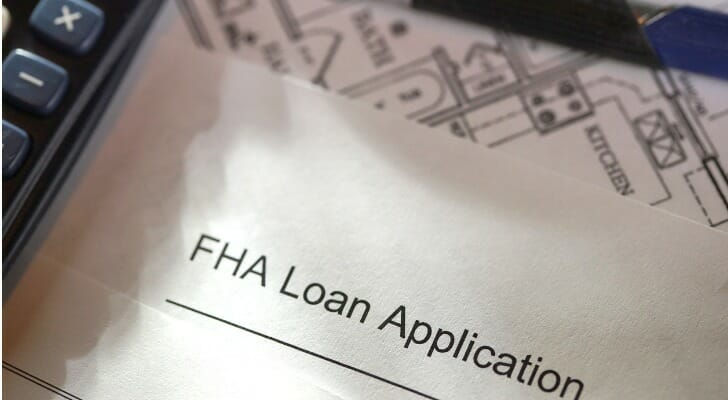Federal Housing Administration (FHA) loans are a government-insurance mortgage product offered to qualified borrowers across the country. These loans, which are offered by private lenders and secured by the FHA, may make homeownership more accessible and affordable. This is especially true for borrowers with lower credit scores or a smaller down payment contribution. If you’re considering an FHA loan for your next home purchase, there are a few personal and property requirements to keep in mind first. Consider working with a financial advisor as you weigh your options for getting a mortgage.
Requirements for the Property
Knowing the FHA loan requirements can help ensure that you are eligible to take out one of these government-insured loans before you even apply. In order to qualify for an FHA loan, the home must be your primary property. It can be a single-family home or a multi-family property with up to four total units. FHA loans are also available on manufactured and mobile homes, whether or not you own the land it’s on.
Prior to closing on an FHA loan, each home will need to pass an FHA inspection and appraisal. This can help identify any hidden or potential issues within the property. It also provides all parties with an accurate market value of the home.
FHA Loan Limits for 2023
The maximum FHA mortgage you can take out depends on the type of home you’re buying, as well as your location. Each year, the FHA releases new limits for the upcoming calendar year. If the home you’re buying costs more than the limit for your county, then you won’t qualify for an FHA loan.
As of 2023, conventional loans for a one-unit family home have a $726,200 limit in the continental United States. High-cost areas like Hawaii have a loan limit of $1,089,300.
FHA Loan Requirements
Credit Score and Down Payment

To qualify for an FHA loan, borrowers need to have a FICO credit score of at least 500. With a 500 credit score, borrowers can take out an FHA loan with as little as 10% down. If you’re interested in a smaller down payment amount – putting down as little as 3.5% on the new loan – the minimum FICO credit score required is 580.
It’s important to note that even though the FHA has minimum credit score requirements of just 500 and 580, the individual lenders that actually offer the mortgage loans are able to set higher thresholds. This means that you could, for example, find an FHA lender with a credit score requirement well into the 600s. You would need to meet this requirement in order to take out an FHA loan through that lender.
Employment and Income
There are no specific income or employment requirements in order to qualify for an FHA loan. However, lenders will look at these factors when determining whether you’re reasonably able to repay a mortgage loan.
With that said, lenders will verify applicants’ employment over the previous two years. Applicants will be expected to explain any gaps in employment (one or more months) that occurred during that time. Lenders may also request additional employment records and verification of training or education. In some cases, they can even request an employer’s confirmation that you are being offered continued employment.
FHA Loan Debt Ratio Limits
In order to qualify for an FHA loan, you’ll need to meet certain limits regarding your debts. First, there is a maximum monthly housing expenses ratio limit of 31% of your gross monthly income. The category of housing expenses includes rent or mortgage, insurance, property taxes etc.
Then, there is a debt-to-income (DTI) limit of 43%. This means that your total debt burden (minimum monthly payments on loans, credit card balances etc.) cannot exceed 43% of your gross monthly income.
Bottom Line

An FHA-insured mortgage loan can make homeownership more accessible for borrowers with small down payments or lower credit scores at the time of application. While these loans enable private lenders to take on higher-risk borrowers, there are still important requirements in order to qualify. Additionally, borrowers should remember that lenders can also set their own requirements. In some cases, these may be more stringent than those imposed by the FHA.
Mortgage Tips
- Not sure how to manage your money with a mortgage? A financial advisor can offer valuable guidance. Finding a qualified financial advisor doesn’t have to be hard. SmartAsset’s free tool matches you with up to three financial advisors who serve your area, and you can interview your advisor matches at no cost to decide which one is right for you. If you’re ready to find an advisor who can help you achieve your financial goals, get started now.
- Use our free mortgage calculator to find out how much house you can really afford.
Photo credit: ©iStock.com/Kameleon007 , ©iStock.com/Ridofranz, ©iStock.com/designer491
